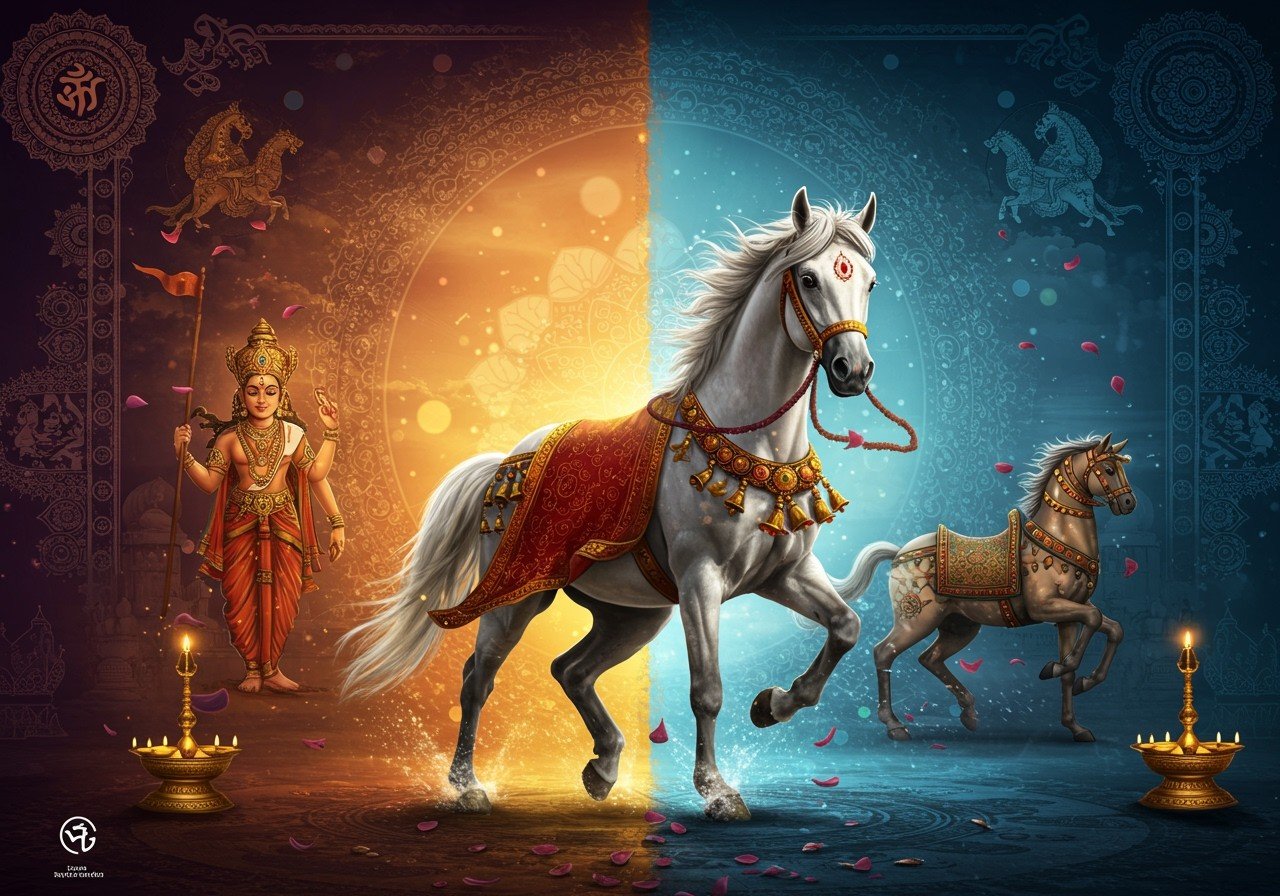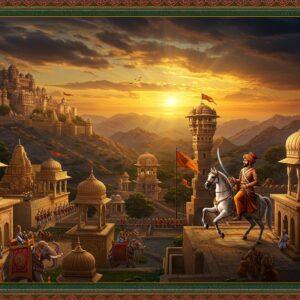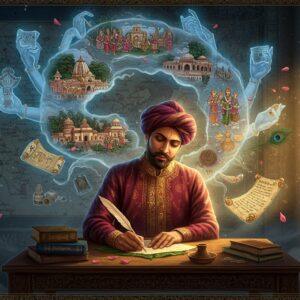
In the tapestry of Indian culture, the word “Ashva” (अश्व) resonates with a profound significance that extends far beyond its literal translation as “horse.” It embodies a rich symbolism deeply intertwined with history, mythology, and spiritual beliefs. From ancient Vedic texts to vibrant regional traditions, the Ashva stands as a powerful emblem of strength, grace, and the sacred connection between humans and the divine.
Unveiling the Multifaceted Symbolism of Ashva
The Ashva’s symbolism is multifaceted, encompassing various interpretations across different contexts. Let’s delve into some of the key aspects:
- Strength and Power: The Ashva is often associated with strength, power, and vitality, representing the life force that propels us forward. Think of the majestic steeds ridden by warriors and kings, a symbol of their authority and prowess. We also see this association in festivals like Mysore Dasara, where decorated horses play a central role.
- Royalty and Nobility: Historically, horses were closely linked with royalty and nobility. Owning horses was often a sign of status and power, and they featured prominently in royal processions and ceremonies. This connection is beautifully illustrated in ancient Indian art and architecture, depicting horses as symbols of regal splendor.
- Speed and Agility: The Ashva’s swiftness and agility are symbolic of freedom, transcendence, and the ability to overcome obstacles. Imagine the windswept mane of a galloping horse, a symbol of untamed spirit and the pursuit of higher goals.
- Detachment and Spiritual Aspiration: In some interpretations, the Ashva also represents detachment from material possessions and the pursuit of spiritual liberation. The horse, unburdened by worldly attachments, can symbolize the soul’s journey towards enlightenment.
Ashva in Regional Traditions
The reverence for the Ashva is reflected in diverse ways across India’s rich tapestry of regional cultures. Here are some examples:
- Marathi Culture: In Marathi, “Ashva” is deeply rooted in history and culture, often linked with bravery and nobility. The presence of horses in regional rituals and festivals exemplifies their significance as symbols of power and vitality. Explore more about regional festivals.
- Kannada Culture: Kannada culture also cherishes the Ashva, connecting it to royal traditions and historical battles. The depiction of horses in art and temple architecture showcases their importance as symbols of valor and determination.
Ashva in Mythology and Sacred Texts
The Ashva’s significance is deeply embedded in Indian mythology and sacred texts. Here are some key references:
- Ashvamedha Yagna: This ancient Vedic ritual involved the sacrifice of a horse, symbolizing royal power and sovereignty. It was a grand ceremony performed by kings to assert their dominance and ensure prosperity for their kingdom.
- Uchchaihshravas: This divine, seven-headed horse emerged from the churning of the cosmic ocean, a symbol of magnificence and the interconnectedness of all creation. Learn more about the sacred power of water in Hindu mythology.
- Hayagriva: An avatar of Vishnu with a horse’s head, Hayagriva is revered as the god of knowledge and wisdom, further elevating the Ashva’s symbolic importance.
- Epics and Puranas: The Mahabharata and Ramayana, along with various Puranas, feature horses as integral parts of their narratives, often associated with heroes, gods, and pivotal events. These stories emphasize the Ashva’s role in shaping destiny and upholding dharma.
Ashva in the Modern World
Even in the modern world, the Ashva continues to hold a special place in Indian hearts. Its symbolism persists in various forms:
- Art and Literature: The Ashva continues to inspire artists and writers, appearing in contemporary paintings, sculptures, and literary works. This reflects the enduring appeal of the Ashva as a powerful symbol.
- Festivals and Celebrations: Horses continue to be an integral part of many Indian festivals, where they are decorated, paraded, and honored, keeping the tradition alive and vibrant.
- Names and Symbols: The name “Ashva” and its variations are still popular choices for children, reflecting the continued reverence for the horse’s symbolic qualities. We also see horse motifs used in various decorative items and symbols, signifying good luck and prosperity.
Connect with Ashva Traditions at Poojn.in
At Poojn.in, we understand the deep-rooted significance of the Ashva in Indian culture. That’s why we offer a wide range of authentic products that help you connect with these traditions. Whether you are seeking a beautiful brass horse statue for your home altar, traditional horse bells for ceremonies, or exquisite Ashva-themed decorative items, we have something to suit every need.
We also offer products related to other revered figures in Hindu mythology, including Lord Krishna and Lord Shiva. Learn more about the significance of Krishna’s names or explore the divine love story of Krishna and Radha. You can also browse our selection of Shiva Lingams and Nandi statues, crafted with reverence and attention to detail. Discover these sacred items here.
With our convenient online platform, you can easily browse and purchase high-quality ritual items, delivered right to your doorstep. We also offer expert guidance on product selection and cultural significance, ensuring a fulfilling and enriching shopping experience.
We also offer other sizes to suit your needs, like this smaller, yet equally powerful, 3.5-inch Panchmukhi Hanuman murti.
Embracing the Timeless Legacy of the Ashva
The Ashva’s journey through Indian culture is a testament to its enduring symbolism. It is a symbol that continues to inspire, connect us with our rich heritage, and remind us of the timeless values that shape our lives. At Poojn.in, we are honored to be a part of this journey, helping you embrace the majestic legacy of the Ashva.


